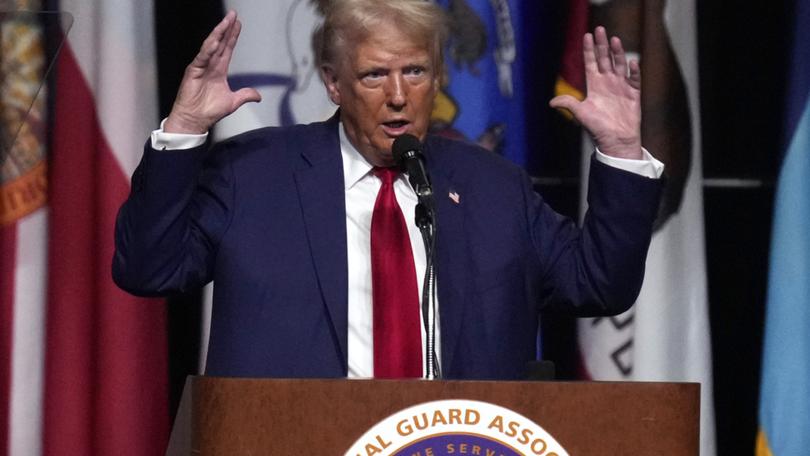Donald Trump re-charged in special counsel election case due to Supreme Court immunity ruling
The superseding indictment was presented to a new grand jury that had not previously heard evidence in the criminal case against the Republican presidential nominee.

A federal grand jury on Tuesday returned a superseding indictment charging former President Donald Trump with the same offences that he originally faced in his criminal election interference case in Washington, D.C.
The new indictment was filed in order to “respect and implement” the views and instructions of a recent Supreme Court decision granting former presidents “presumptive immunity” for their official acts in office, special counsel Jack Smith said in a separate court filing.
The superseding indictment was presented to a new grand jury that had not previously heard evidence in the criminal case against the Republican presidential nominee, Smith’s filing said.
Sign up to The Nightly's newsletters.
Get the first look at the digital newspaper, curated daily stories and breaking headlines delivered to your inbox.
By continuing you agree to our Terms and Privacy Policy.The Department of Justice does not oppose letting Trump waive his appearance at an arraignment on the new indictment, the filing added.
Like the original charging document filed in August 2023, the newly filed superseding indictment charges Trump with four counts related to his alleged efforts to illegally overturn his loss to President Joe Biden in the 2020 election.
Trump faces one count each of conspiracy to defraud the United States, conspiracy to obstruct an official proceeding, obstruction of and attempt to obstruct an official proceeding, and conspiracy against rights.
The case — which centres in large part on the events surrounding the January 6, 2021, Capitol riot — was widely viewed as one of the most serious of the four criminal cases that Trump has faced while running for another term in office.
But the case in U.S. District Court in D.C. was put on hold for months while Trump’s lawyers litigated their argument that he was immune from the charges because he was president at the time the alleged acts took place.
The Supreme Court took up the dispute. In a July 1 ruling vehemently opposed by its three liberal justices, the court held that former presidents enjoy “absolute immunity” from criminal prosecution for certain executive conduct and “presumptive immunity” for all other official acts.
